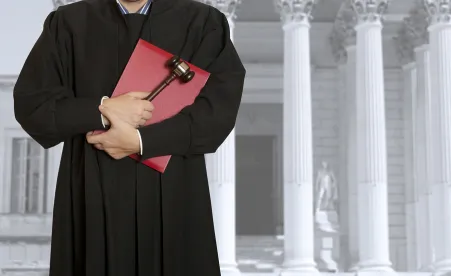On February 17, 2016, the FAR Council proposed a rule that would add a new category of unallowable costs to FAR Part 31 — costs of responding to an inquiry by Congress, if that inquiry results from a judicial or administrative proceeding in which the contractor is found criminally liable, found liable for civil fraud, ordered to remedy a whistleblower reprisal, suspended or debarred, terminated for default, or in which the contractor paid to settle a proceeding that could have led to any of these outcomes.
The proposed rule stems from the National Defense Authorization Act (NDAA) for Fiscal Year (FY) 2015. Section 857 of the FY 2015 NDAA made unallowable any costs incurred by a contractor “in connection with a congressional investigation or inquiry” that seeks information related to a proceeding against the contractor that results in one of the following: a criminal conviction (including a plea of nolo contendere); a determination of civil liability on the basis of fraud; a monetary penalty related to a whistleblower reprisal action; suspension or debarment; a termination for default; or a settlement of a proceeding if it could have led to any of these outcomes. The proposed rule adds this statutory disallowance of costs to FAR sections 31.205-47 (“Costs related to legal and other proceedings”) and 31.603 (“Requirements” related to “Contracts with State, Local, and Federally Recognized Indian Tribal Governments”).
The FAR Council noted that its proposed rule extends beyond the reach of the FY 2015 NDAA itself: although Section 857 of the FY 2015 NDAA “only applies to contracts with the DoD, NASA, and the Coast Guard,” the FAR Council nonetheless issued a FAR-wide rule “for the purpose of promoting consistency in the accounting systems of Federal contractors.”
Although the underlying statute and FAR 31.205-47 provide that a contractor may enter into a settlement agreement making the costs of the judicial or administrative proceeding allowable, the proposed revision to the cost principle does not make it clear whether the costs of responding to a follow-on congressional investigation after such a settlement would be similarly allowable. Likewise, FAR 31.205-47 allows a contractor to recover its costs after settling a qui tam False Claims Act action or a whistleblower reprisal action, if the government did not intervene and if the contracting officer determines that the plaintiff had very little chance of prevailing. However, the proposed rule does not make it clear whether the costs of responding to a follow-on congressional investigation after such settlement would be allowable. While the corresponding revisions to the cost principles for contracts with state local and tribal governments in FAR 31.603 seem intended to allow the costs of congressional investigations in these cases, the wording of proposed FAR 31.205-47(f)(9) would, on its face, make such costs unallowable despite the fact that the costs of the underlying settlement would be allowable.
The FAR Council determined that the proposed rule would have a relatively insignificant impact, as it is “extremely rare” that a contractor is called to answer to Congress. The assessed impact on small business contractors was deemed even less significant because, according to the FAR Council, fewer than 200 small businesses are performing contracts subject to FAR Part 31 and even fewer will be the object of a congressional investigation or inquiry.
Comments on the proposed rule must be submitted by April 18, 2016.




 />i
/>i

